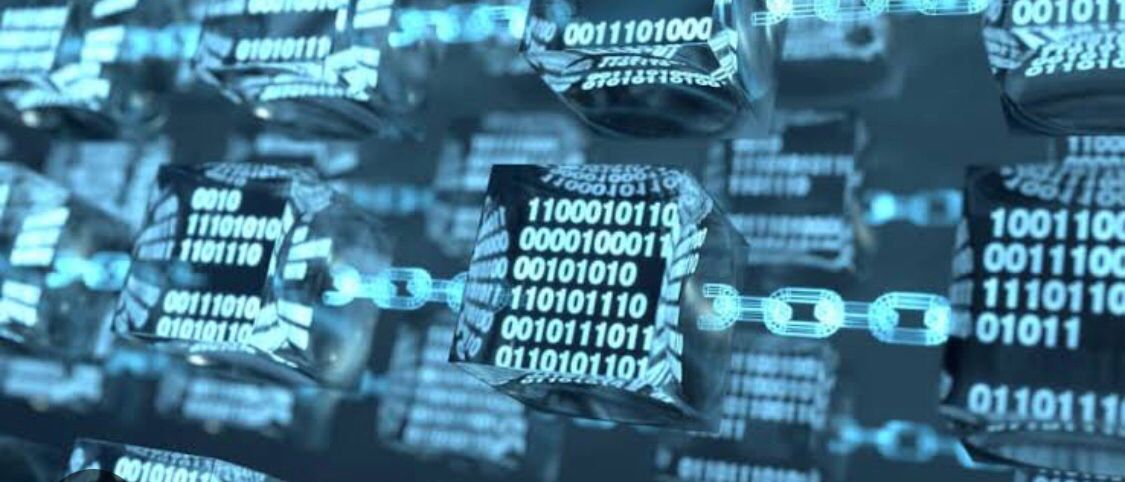
A blockchain is an immutable database or ledger that is shared across all participants in a network. As the name indicates, a blockchain consists of a chain of blocks. Each block stores some transaction information, such as date, time and transaction amount. This is what facilitates the process of recording transactions and tracking assets in a business network.
Besides this, the block also contains a hash – which is a cryptographic signature that acts as a fingerprint for the block – and the hash of the previous block. This is what connects the blocks to each other and also provides a high degree of security. If the data in the block is changed, the hash of the block changes. This change in hash invalidates all the blocks following it, since the hashes stored in the current block and the next do not match up anymore.
While blockchains are best known for their crucial role in cryptocurrency systems for maintaining a secure and decentralized record of transactions, they are not limited to this industry. Not only are blockchains highly secure, but also they provide peer-to-peer connections, reducing the need for trusted third parties, which are usually auditors or other humans that add costs and make mistakes. Blockchains also provide a degree of transparency since all stakeholders are provided the authority to view transactions. These factors are all making the use blockchain an increasing popular choice for data management in a number of industries.
Banking
Banking stands to benefit more than perhaps any other industry by integrating blockchain technology.
Integrating blockchain into banks would lead to a drastic decrease in processing time. Transactions may be processed in minutes or even seconds, instead of the days or week required in traditional banking. Given the size of the sums involved, even the few days the money is in transit can carry significant costs and risks for banks, making speedy transactions especially important
Blockchainalso eliminates the need for a third-party system and provides a peer-to-peer payment system with lower fees. Since no central authority is involved, users are not allowed to pay fees to one. Transactions between users recorded in a shared ledger that is reviewable by any of the cryptocurrency users – providing true autonomy over transactions.
Currency
In 2021, El Salvador became one of the first nations to accept Bitcoin as a legal tender. Many researchers think that developing countries are likely to accept cryptocurrencies soon due to global inflation and rising costs of money transfers between financial intermediaries.
Blockchain gives people in countries with unstable currencies a more stable financial system. It provides access to more applications and a wider network of individuals and institutions with whom they can conduct domestic and international business.
Using cryptocurrency wallets as a means if payment or for savings accounts is especially profound for those without state identification. Some countries may be war-torn or have governments lacking functional identification infrastructure. Citizens of such countries may not have access to savings or brokerage accounts—and, therefore, no way to safely store wealth.
Cybersecurity
Data tampering is an ongoing challenge faced by businesses today. Thus, cybersecurity is one of the most promising areas of projected growth for blockchain, which can be used to prevent tampering, secure data, and allow users to verify the authenticity of files.
Blockchain’s decentralization makes it ideal for environments where high security is involved. One example of a company successfully using cybersecurity this way is Guardtime, which has been active in the research and development of blockchain protocols and applications for over 10 years. It believes that ‘over the next decade, every physical, digital and financial asset will be tokenized. The real world, however, is not “on-chain” and the role of blockchain will simply be as a censorship resistant machine for the creation of tokens, which can be verified and acted upon with zero trust assumptions off-chain in the real world.’
Voting
Voting with blockchain carries the potential to eliminate election fraud. Using blockchain would make votes nearly impossible to tamper with. The blockchain protocol would also maintain transparency in the electoral process, and provide officials with nearly instant results, reducing the personnel needed to conduct an election.
Due to ease of use, blockchain can also be used to boost voter turnout, as was demonstrated by some absentee and overseas military personnel, who used blockchain to cast their votes in West Virginia in 2018 and Colorado in 2019.
Supply chain management
By tracing all the steps of the supply chain, blockchain can provide transparency and validate transactions for all stakeholders. It can also reduce time delays and human errors.
The food industry is increasingly adopting the use of blockchain to track the path and safety of food. As in the IBM Food Trust, suppliers can use blockchain to record the origins of materials that they have purchased. This would allow companies to verify the authenticity of their products. The Pacific Tuna Project is another example, which uses blockchain to manage fishing information, details of import and export, and purchasing details to prevent illegal tuna fishing.
Government
Blockchain can help in the administration of very large quantities of data, which can be useful for government agencies. The implementation of Blockchain will make for an effective data management system with the power to drive improvement in the functioning of Government agencies.
Governments can use distributed ledger technology (DLT) systems to replace traditional paper-based systems. Blockchain can be used for digital asset registration, notary services and taxes.
The UAE Government has adopted blockchain technology in conducting its transactions. To aid this move, it had launched the Emirates Blockchain Strategy 2021. Dubai Future Foundation established the Global Blockchain Council to explore, discuss current and future applications and organise transactions through the blockchain platform.
Medical
Healthcare providers can leverage blockchain technology to store their patients’ medical records securely. When a medical record is generated and signed, it can be written into the blockchain, which provides patients with proof and confidence that the record cannot be changed. It also addresses the matter of patient privacy.
Counterfeit medication is another healthcare concern that blockchain can control. Often, counterfeit medications are difficult to distinguish from real ones. Thus, tracking and regulating them becomes difficult. Blockchain technology solves this issue by using supply chain management protocols where the medication can be traced.Concerns about the production and distribution of counterfeit vaccines are already being resolved. IBM is one of the pioneers when it comes to leveraging blockchain to develop a vaccine delivery system.
Conclusion
Blockchain technology’s applications extend far beyond the cryptocurrency realm, due to its high security and transparency finding utility in various industries. As this transformative technology continues to evolve, the future holds exciting possibilities for the global adoption of blockchain in diverse sectors.

DPS RK Puram






